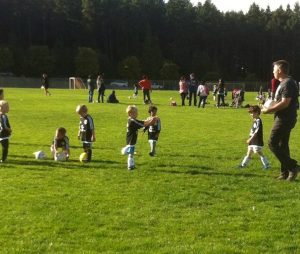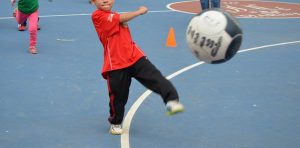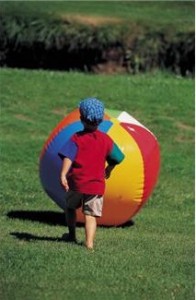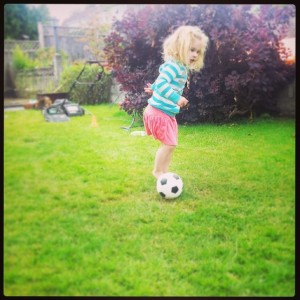Soccer matches started even before the Opening Ceremony, kicking off the Games. Did you know there are some great benefits of playing soccer for kids?

Getting to the Olympics as a team member has been an incredible journey of sacrifice and dedication. Where did that journey start? If you read the bios of some of the soccer team members, many of them started playing as preschoolers, kicking around the ball with family and friends. They played in backyards if they were big enough, and playgrounds and parks too.
Any child, not just future Olympic stars, can benefit from playing soccer. Running around and kicking a ball obviously benefits kids physically. Children need to move and be active. At this stage, young bodies and brains are figuring out how to work together. Soccer is an opportunity to do this. Besides coordination, children strengthen their core muscles and gross motor skills.
Besides physically, soccer gives kids a chance to connect with others. One child playing with a ball often attracts a couple more who would like to play too. Kids practice taking turns and sharing. They watch and listen to each other as they interact. Communicating to others will be a life-long challenge and playing soccer provides kids with a relevant situation for doing just that.
Emotionally, soccer can build self-confidence. Emotions are tricky, even for adults. Self-regulation, that is coping with disappointment, frustration, and anger is a critical skill for kids that will impact them whatever they do. That also comes into play in soccer.
On a mental level, kids are learning to make predictions, manage risks, judge their strength and force, and solve problems. During play, kids are very much thinking on their feet.

Soccer is a fun game, and we can all use fun in our lives. With all these benefits of playing soccer for kids, is it any wonder soccer is one of the most popular games in the world?


